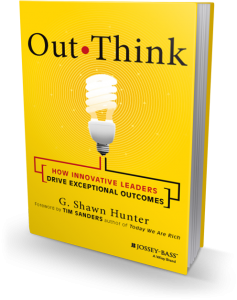Why Energy is More Important Than Skills and Results
I had an interview recently with Victor Cho. Victor is currently the CEO of Evite, the digital invitation service. You may have used them to organize a dinner event, or your kid’s birthday party. Evite currently has about 70 employees, which as he describes, is big enough to offer a full spectrum of organizational challenges, yet small enough to remain nimble in this volatile technology market.
In our conversation, Victor pointed out that competitive advantage comes down to the quality of the people. Talent is everything. When it comes to hiring, and placing the right people in the right roles at Evite, Victor thinks in three dimensions.
Skills and Capabilities
First, do they have the skills and capabilities to do the job, and are they willing to constantly learn and gain new capabilities. As he described, it’s certainly important that people arrive with great skills for whatever role they are applying for, but more importantly he looks for a constant willingness to learn, grow and develop new capabilities along the way. This is the growth mindset every top contributor needs.
Points on the Board
The second criteria Victor considers is how much contribution are they making to organizational goals? It’s something Victor refers to as “points on the board.” That is, how many hard, measurable contributions are people making toward the company’s vision. He’s patient with this criteria. It can take time and inertia to put points on the board.
Energy Accretion
The final criteria Victor looks for is something he calls “energy accretion.” Accretion is a fancy word simply meaning “to build gradually” or “to grow.” His expression means how much do people in the organization contribute to, and accelerate, the positive energy of those around them. If “points on the board” is the science, then “energy accretion” is the art.
Victor defines “energy accretion” as one’s ability to build a positive sense of curiosity, enthusiasm, and can-do attitude on the team. Victor views this subjective, and hard-to-quantify trait as the most important characteristic.
Victor has the least patience with those who disrupt the chemistry in the organization. The other two factors about skills and contribution, he is more forgiving and patient. Here’s why: Skills can be learned and developed, and points on the board can be coached, and often outside factors can get in the way of contributing hard results.
Bad chemistry and negative mojo can quickly spoil the energy of an entire team. In Victor’s opinion, this is where many leaders can often get sidetracked. In his experience, leaders and managers often hold measurable contributions in highest esteem.
This is an easy trap to fall into. After all, if we want results, who cares how it gets done, right? This is a mistake. When we start to reward results by any means, at any cost, we celebrate lone heroes, and place individuals above the team. Because in the long run, it’s teamwork and collaboration that will create breakthrough results, not lone wolves.
- Join my Email updates for regular updates on leadership and life
- Learn more about my Speaking work
- ____________________________________________________
 Shawn Hunter is President and Founder of Mindscaling, a company building beautiful elearning courses based on the work of thought-leaders and authors. He is also the author of Out•Think: How Innovative Leaders Drive Exceptional Outcomes.
Shawn Hunter is President and Founder of Mindscaling, a company building beautiful elearning courses based on the work of thought-leaders and authors. He is also the author of Out•Think: How Innovative Leaders Drive Exceptional Outcomes.
Twitter: @gshunter
Say hello: email@gshunter.com
Web: www.shawnhunter.com




